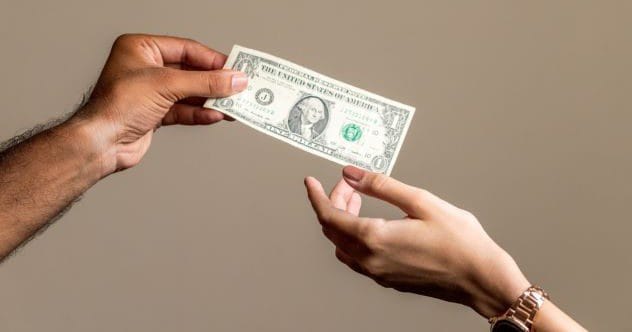What can a single dollar buy you today? Not much, right? A small snack, maybe a bus ticket. But history holds some incredibly surprising stories of significant items and rights that were sold for the mere sum of one dollar. Get ready to be amazed by these ten notable things that were once exchanged for a single buck!
Coca-Cola Bottling Rights
Back in 1886, John S. Pemberton created Coca-Cola, initially selling it as a fountain drink. Asa G. Candler acquired Coca-Cola later. Despite his nephew’s suggestion to bottle the drink, Candler dismissed the idea. When some businessmen approached him with interest in bottling Coca-Cola, Candler, unconvinced of its potential, sold them the bottling rights for just $1, not even bothering to collect the payment! Today, Coca-Cola is a global giant sold primarily in bottles and cans.
Newsweek Magazine
Newsweek, the well-known American weekly news magazine, was part of The Washington Post Company’s portfolio from 1961 to 2010. Due to declining revenue, the company decided to sell it to Sidney Harman for a single dollar. The condition? Harman had to assume the magazine’s liabilities. Despite the initial challenges, Newsweek remains a prominent voice in American news today.
Insulin Patent
The discovery of insulin by Sir Fredrick G. Banting in 1921 was a monumental medical breakthrough. Banting, along with his co-inventors James Collip and Charles Best, sold the insulin patent to the University of Toronto for a mere $1. Banting felt it was unethical for doctors to profit from a discovery that could save lives. Ironically, despite their intentions, insulin remains costly today, limiting access for some patients.
Rights to The Terminator Script
Before James Cameron became a celebrated director, he was struggling to get his project, The Terminator, off the ground. To secure his position as director, Cameron sold the rights to the movie for just $1, with the stipulation that he would direct it. Despite other studios expressing interest in the script, none would give Cameron the chance he needed. He eventually found a studio that agreed to his terms, launching his career and creating a timeless classic.
TV Guide Magazine
The sale of TV Guide Magazine is another head-scratcher. Open Gate Capital acquired the entire business from Macrovision for just $1. At the time, a single issue cost $2.99! Macrovision even loaned Open Gate Capital $9.5 million to help with the transition. It’s a stark reminder that value isn’t always reflected in a price tag.
The Dollar Baby Program
Stephen King’s Dollar Baby Program allowed aspiring filmmakers and students to adapt his short stories for just $1. The catch? Strict stipulations, including a 45-minute time limit and restrictions on distribution. Frank Darabont, who later directed The Shawshank Redemption and The Green Mile, got his start through this program. The Dollar Baby Program ended on December 1, 2023, marking the end of an era for aspiring creatives.
DuPont’s Plutonium-Producing Nuclear Site
During World War II, the DuPont Company, despite past allegations of war profiteering, agreed to be the primary contractor for plutonium-related work for the Manhattan Project. To avoid further scandal and project a patriotic image, DuPont accepted only $1 for its services. This move ensured that the company’s contribution would be viewed as purely for the nation’s benefit.
Chocolate Chip Cookie Recipe
Ruth Graves Wakefield, the inventor of the chocolate chip cookie, sold the rights to her famous recipe to Nestle for just $1 and a lifetime supply of Nestle chocolate. The cookie’s popularity exploded during World War II, and Nestle capitalized on Wakefield’s creation, making it a beloved treat worldwide. What a sweet deal for both parties!
A Chicago Home
Yes, you read that right. A real, two-bedroom house in Chicago was sold for $1. This happened after the owner faced foreclosure in 2010, and the bank repossessed the property. The housing crisis of 2010 led to similar situations in cities like Detroit, where houses were sold for next to nothing due to economic decline.
Radio Rights for Star Wars
With an estimated value of $70 billion across movies, books, and merchandise, the Star Wars franchise is a global phenomenon. In 1983, George Lucas, a fan of National Public Radio (NPR), granted them the radio rights for Star Wars for just $1. Considering the franchise’s immense worth, this might be the most valuable thing ever traded for a single dollar!
From bottling rights to iconic movie scripts, these stories highlight the unpredictable nature of value and the surprising circumstances that can lead to extraordinary deals. Which of these one-dollar deals surprised you the most?
Leave your comment below and share your thoughts!










